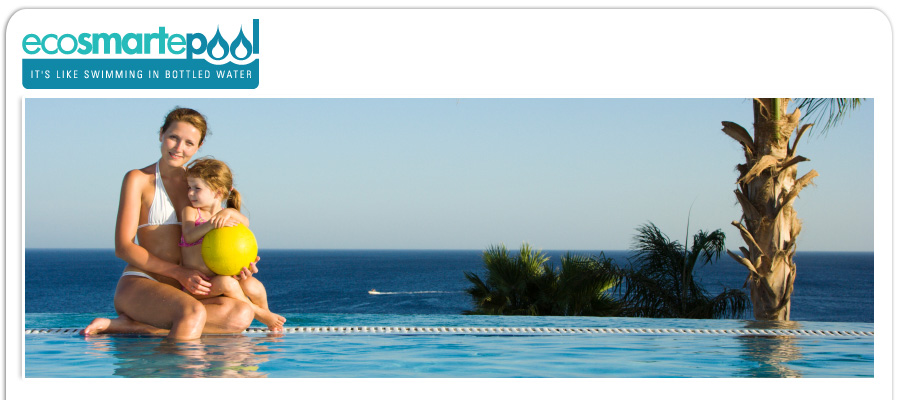

Algae in Salt Water Pool
Are you considering a salt water pool system? There are both advantages and disadvantages of salt water pools, but one of the biggest benefits is the lack of algae in salt water pool systems. Due to the fact that salt water pools have low stabilizer levels, the algae in salt water pool systems cannot grow like the algae in chlorine pools.In a typical chlorine system, you add stabilizer to the pool. In fact, whenever you add chlorine, you also add stabilizer. This is needed to combat the harsh chemicals in the water. However with a salt water system, you don’t add chlorine at all. While you do have to occasionally add a stabilizer, it is much easier to control, which means that the levels don’t bounce as much. These bouncing levels are what algae to feed and grow in your pool.
With a salt water pool not only will you save money because you don’t have to buy chlorine which can be quite expensive, but you also save money because you don’t have to work to clear up algae problems. Algae in salt water pool systems are rare, as long as you continuously watch the chemical levels. In general, though, algae in salt water pool are rare naturally, so even if the chemical levels do jump out of sync, like they may if you leave for vacation for a week or two, the problem is easily resolved. In a traditional pool system you’d come back to a green pool, but in algae in salt water pool system is easier to regulate.
Algae cause a number of problems in a pool. These include:
• Cosmetic Problems: No one wants to swim in a pool that is green, brown, or yellow!
• Health Problems: While algae is in and of itself not harmful to your. However, it is a harbor to
pathogens which can take a toll on your health, such as the Ecoli bacteria and other bacteria and viruses.
• Chemical Problems: Algae eats chlorine, so even if your get your chlorine levels back up to
speed, you’re going to have to add more and more chlorine to maintain healthy levels.
There are a number of different types of algae. In salt water pool systems, you’ll usually find none. Algae can bloom very quickly in the summer time, but because algae in a salt water pool are not a problem, you don’t have to worry about a sudden outbreak of algae ruining an afternoon of swimming.
Remember, however, that there are many disadvantages to salt water pools as well. Salt water
pools may be better at controlling algae because of their low chlorination needs; there are still
chemicals in a salt water pool. In addition, a salt water pool system is more expensive to put in
initially. However, at the same time, keep in mind that chlorine systems are expensive to maintain. There are other more natural pool options that you can consider instead that are better for you and for the environment.

Problems with Salt Water Articles: Salt Water Pools - Salt Water Generator - Salt Water Chlorinators - Salt Water Corrosion
Salt Water Pool Info - Algae in a Salt Water Pool - Problems - Pool Chemistry - Cost - Damage to Pool Equipment
Salt Water Pool Info - Algae in a Salt Water Pool - Problems - Pool Chemistry - Cost - Damage to Pool Equipment
